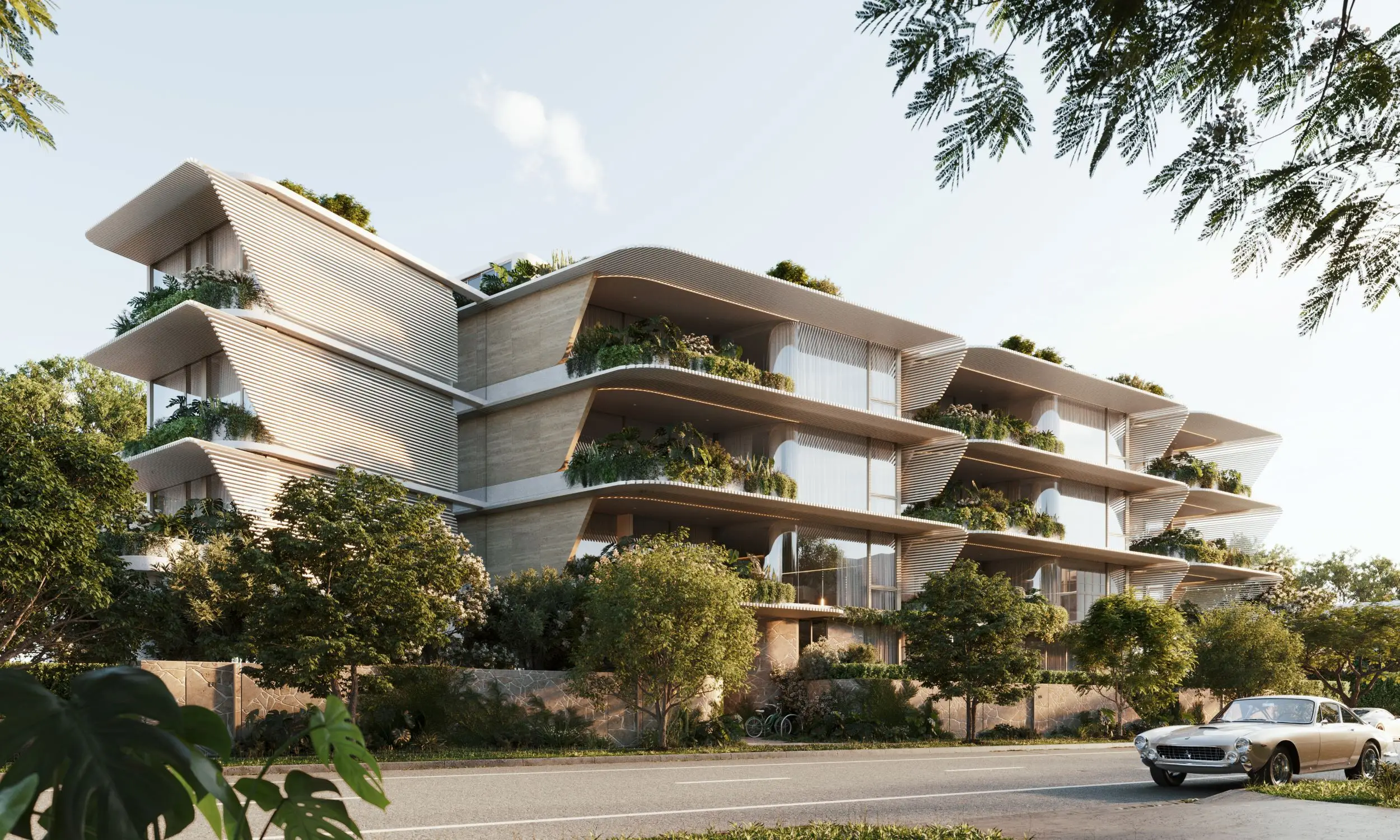
Buying a property ‘off the plan’ means exactly that – purchasing property at today's prices prior to construction being completed.
Most developers of strata projects are required to secure a number of pre-sales as a condition of bank finance. They may even offer discounts to early purchasers.
In most cases you pay 10% of the purchase price and are entering into a contract with the developer. The balance is paid upon ‘settlement’ when the building is completed. This can be anywhere from a few months up to two years after the initial contract is signed.
Most ‘off the plan’ purchases are apartments, but townhouses, villas and land packages are also available.
Buying a property at today's prices and settling later is a tempting proposition, especially in a rising market.
If the buyer isn't willing to assume the risks associated with off the plan purchases, they may end up paying more for the same property when it is completed and the best apartments in the building may have already sold.
Delayed settlement gives you more time to save for your deposit and plan for mortgage repayments.
Another benefit for buyers purchasing new strata units off the plan is the ability to select or vary finishes and fixtures, giving you the opportunity to make certain changes to suit your own taste.
The big unknown when investing off the plan is whether your purchase price will reflect market conditions upon settlement. So is now a good time to buy off the plan?
New properties generate the maximum level of property deprecation allowed under ATO guidelines. Investors can claim 2.5% depreciation allowance of the construction cost – which in the case of a new multi-story building – can be substantial.
You'll also be entitled to claim the full amount of depreciation allowance on fittings and finishes such as blinds, ovens, carpets, air conditioners etc, which will all be brand new.
Tyron Hyde, Construction Economist and Director of Washington Brown Quantity Surveyors, estimates that a $400,000 high-rise apartment in Sydney could generate up to $12,000 in depreciation in the first year alone.
“Tax deductions aren't the main reason you buy property off the plan,” warns Hyde. “It needs to be a good investment. But investors still fail to capitalise on the deprecation benefits they're entitled to. It can make a significant difference come tax time.”
Once the property is completed and rented, the same tax rules apply as with any investment property.
To find out how much depreciation you can claim on a potential property investment, try our new state-of-the-art Depreciation Calculator
The main disadvantage of buying property off the plan is the risk of market fluctuations. It may be difficult to predict whether the selling price will reflect the actual market value at the time of settlement. These market fluctuations can include interest rate rises.
For this reason it is essential to do your homework rather than rely solely on promotional material from the developer.
They key to a successful off the plan investment is research. Find out as much as you can about the area you are buying into. Is there an oversupply of new product in that particular suburb? What are the current rental returns? How much are similar properties selling for?
Look for growth areas with proximity to desirable lifestyle features such as cafes and restaurants, transport and public schools. With a dwindling supply of land along the coast, properties with water views tend to yield higher returns.
Current social factors are also a good indication of possible trends to follow. For instance, the upward pressure on petrol prices could create a demand for housing closer to transport hubs in the future.
And of course, the biggest factor to consider is, can you afford it? Don't bite off more than you can chew.
Another risk when buying off the plan is that the finished product might not live up to your expectations.
At the end of the day you are buying a property site-unseen so make sure you research the developer before signing the contract. Find out how long the developer has been in business and arrange to inspect past projects and see the quality of their finished work.
Thoroughly inspect all plans and display units. Find out the exact location of your particular lot. You might not want to be close to noisy common areas like lifts or foyers, but not too far away either.
According to John Denes, lawyer and partner of &Legal Lawyers in Sydney, buyers should ensure the sales contract reflects the developer's promises regarding the property. For instance, the description of a proposed major feature such as ‘panoramic harbour views’ must be added to the contract as a vendor warranty.
“If the completed property does not correspond to the concept as represented to the purchaser, the purchaser must be entitled to rescind the contract and recover the deposit paid by him,” Denes says. “Many vendors will refuse to add such a provision to the contract.”
This is where it pays to have a good lawyer check over the contract.
The contract for the purchase of an off the plan apartment serves a dual purpose. It is a contract for the construction of the property as well as a contract for the purchase of land.
“The construction aspect is a very important element of the contract because it will have substantial bearing upon the appearance, longevity and the value of the apartment,” says John Denes, lawyer and partner of &Legal Lawyers in Sydney.
A detailed floor plan showing internal walls and dimensions and a very detailed schedule of finishes should be attached to the contract. Ensure the total floor area of of your apartment cannot be reduced as this will affect the value of your property.
“Contracts often provide that the total floor area will not be reduced by more than 5 percent. This provision may be inadequate where a less valuable outdoor area forming part of a lot – such as a terrace or balcony – is increased and the more valuable internal residential area of the apartment is reduced.”
Common property fixtures, fittings and amenities should be strictly defined and plans and specifications should also be attached.
“If necessary, the purchaser should be advised to insist that the contract be altered in all essential respects before exchange,” says Denes.
What to look for:
- The disclosure of all charges
- A copy of the strata plan showing your particular lot, and any additional space such as garage or storeroom
- A description of the title to be registered
- Commencement and completion dates
- A schedule of fixtures and finishes – preferably with brand names of major products and the cost of upgrading those fixtures
- A mechanism to deal with variations
- Agreement that the developer will provide building costs in order to facilitate a depreciation claim
- A schedule of unit entitlements
Tyron Hyde is the CEO of Washington Brown quantity surveyors and author of his latest hit book, CLAIM IT!


